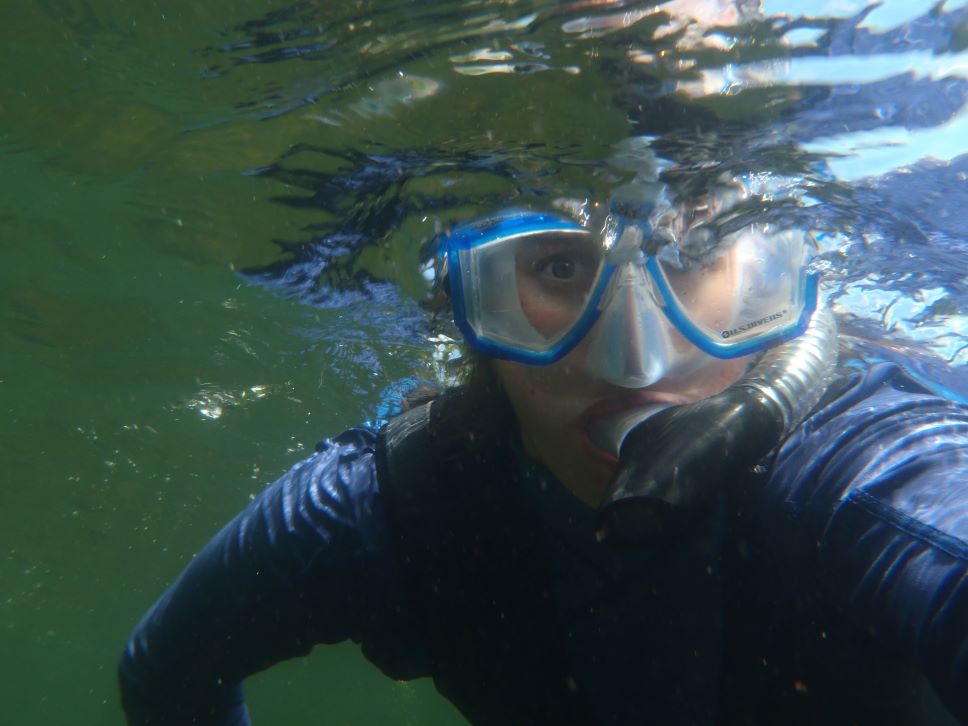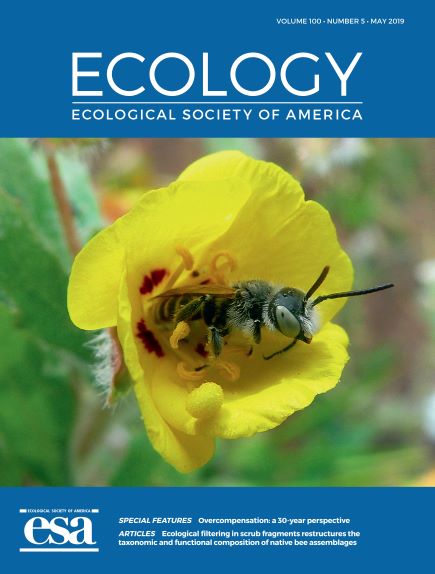ESA Welcomes Kathryn Cottingham as Editor in Chief of Ecology
June 3, 2019
For Immediate Release
Contact: Zoe Gentes, 202-833-8773 ext. 211, gro.asenull@setnegz
 After an extensive, competitive search, the Ecological Society of America is pleased to announce the appointment of Kathryn Cottingham as the Editor in Chief of its journal Ecology. In her new role, Cottingham will lead Ecology in publishing research articles from across the biological and ecological sciences. Ecology, the flagship journal of ESA, celebrates 100 years of publication in 2020 and publishes a broad array of research articles documenting important ecological phenomena.
After an extensive, competitive search, the Ecological Society of America is pleased to announce the appointment of Kathryn Cottingham as the Editor in Chief of its journal Ecology. In her new role, Cottingham will lead Ecology in publishing research articles from across the biological and ecological sciences. Ecology, the flagship journal of ESA, celebrates 100 years of publication in 2020 and publishes a broad array of research articles documenting important ecological phenomena.
“Kathy’s broad research experience in ecology and its applications to environmental health, her leadership background, and her engagement in scientific outreach all make her an excellent choice to oversee Ecology,” says Laura Huenneke, ESA president. “Her leadership will help ESA continue to publish high-impact and highly visible scientific research.”
Cottingham is a professor of biological sciences at Dartmouth College with interests across the ecological sciences. She completed her undergraduate work in biology and mathematics at Drew University and earned M.S. and Ph.D. degrees at the University of Wisconsin at Madison, studying the effects of nutrient inputs and food web structure on freshwater plankton communities and lake ecosystem stability. After joining the first cohort of postdoctoral researchers at the National Center for Ecological Analysis and Synthesis in Santa Barbara, California, Cottingham moved to Dartmouth.
 Cottingham enjoys doing research that can directly affect people’s lives. Her current research in aquatic ecology focuses on understanding the causes and consequences of cyanobacteria blooms in low-nutrient, clear-water lakes with an eye toward reducing the negative effects of blooms on the ecosystem services provided by economically-important lakes across the northeastern U.S. Her environmental health interests include the occurrence of arsenic in drinking water and food, as well as the effects of arsenic on children’s growth and development. A publication Cottingham co-led in this area was named one of the National Institute of Environmental Health Sciences’ “2012 Papers of the Year.”
Cottingham enjoys doing research that can directly affect people’s lives. Her current research in aquatic ecology focuses on understanding the causes and consequences of cyanobacteria blooms in low-nutrient, clear-water lakes with an eye toward reducing the negative effects of blooms on the ecosystem services provided by economically-important lakes across the northeastern U.S. Her environmental health interests include the occurrence of arsenic in drinking water and food, as well as the effects of arsenic on children’s growth and development. A publication Cottingham co-led in this area was named one of the National Institute of Environmental Health Sciences’ “2012 Papers of the Year.”
In 2015, Cottingham was named Dartmouth Professor of Arts and Sciences and a Fellow of the Ecological Society of America. She served as chair of the Dartmouth Biology Department from 2015-2017 and currently serves as a rotating Program Director in the Division of Environmental Biology at the National Science Foundation. She will return to Dartmouth July 1, 2019 and will prepare for her new role with Ecology, which officially begins January 1, 2020.
 “I’m honored to serve as the new Editor in Chief and look forward to strengthening the journal’s commitment to ecological research, understanding, and discovery as it enters its second century,” Cottingham says. She hopes to continue to make Ecology the go-to journal for the most exciting and conceptually innovative papers across the breadth of ecological sciences. Cottingham succeeds Don Strong, who has served with distinction as Ecology’s Editor in Chief since 2001. Since Strong assumed editorial leadership of the journal, Ecology has become the most-cited journal in the field of ecology.
“I’m honored to serve as the new Editor in Chief and look forward to strengthening the journal’s commitment to ecological research, understanding, and discovery as it enters its second century,” Cottingham says. She hopes to continue to make Ecology the go-to journal for the most exciting and conceptually innovative papers across the breadth of ecological sciences. Cottingham succeeds Don Strong, who has served with distinction as Ecology’s Editor in Chief since 2001. Since Strong assumed editorial leadership of the journal, Ecology has become the most-cited journal in the field of ecology.
Established in 1920, Ecology publishes research and synthesis papers on all aspects of ecology, with emphasis on papers that develop new concepts, test ecological theory, or lead to an increased appreciation for the diversity of ecological phenomena. The journal showcases papers on physiological responses of individual organisms to their biotic and abiotic environments, ecological genetics and evolution, the structure and dynamics of populations, interactions among individuals of the same or different species, the behavior of individuals and groups of organisms, the organization of biological communities, landscape ecology, and ecosystems processes. New methodologies with a potential for broad use in ecology are also highlighted in the journal.
###
The Ecological Society of America (ESA), founded in 1915, is the world’s largest community of professional ecologists and a trusted source of ecological knowledge, committed to advancing the understanding of life on Earth. The 9,000 member Society publishes five journals and a membership bulletin and broadly shares ecological information through policy, media outreach, and education initiatives. The Society’s Annual Meeting attracts 3,000-4,000 attendees and features the most recent advances in ecological science. Visit the ESA website at https://ecologicalsocietyofamerica.org.